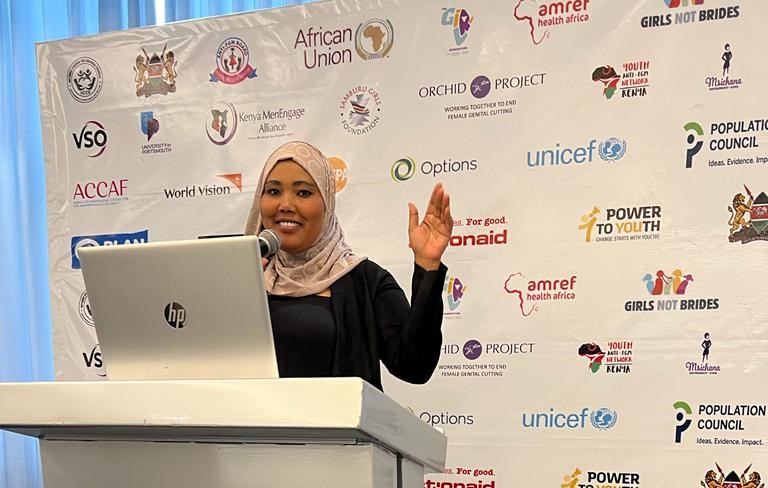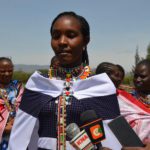
“My younger sister and I went through the FGM/C process together. She was living her best life before the violation. We had no choice as it was accepted as a cultural rite of passage for women,” says Mumina, a survivor and activist.“ Since then, her journey has been heartbreaking. She developed a physical disability after the cut and now limps. Shortly after, she developed a keloid.”
Mumina is deeply angered by the lasting effects of Female Genital Mutilation/Cutting (FGM/C), and her activism is rooted in her personal experiences.
“When my sister got married, she could not bear children, leading to neglect and divorce. She has also suffered a stroke. When I look at her life, my heart breaks—it all started with the cut,” she adds.
The Reality of FGM/C
According to UNICEF, over 230 million girls and women across 31 countries have undergone FGM/C. Practices vary between communities, but globally, it is recognized as a violation of human rights.
“In my community, after girls are cut, traditional herbs are applied to the wound, which is then stitched. This often leads to lifelong infections. Most women who have undergone FGM/C experience pain during sex, which can lead to disinterest in intimacy. Men often fail to understand this pain. Women on the other hand endure mental health complications as a result of FGN/C,” explains Mumina.
A Journey to Healing
The Girl Generation- Support to the Africa-led Movement to End FGM/C Programme (TGG-ALM) works with survivors and community-based activists like Mumina to challenge perceptions and advocate for change. Survivors play a vital role in educating communities and preventing more girls from undergoing FGM/C.
In March 2022, Mumina attended the Survivor Leadership Training (SLT), a transformative program aimed at supporting FGM/C survivors. The training focuses on emotional support, leadership development, and self-care to empower survivors and reduce stigma.
“SLT opened my eyes. I learned about the type of FGM/C my sister and I underwent, gained self-confidence, and began to appreciate myself. The healing I received has made me a stronger advocate for ending FGM/C,” says Mumina.
Advocating for Change
Mumina now leads community conversations in Isiolo County, focusing on girls, boys, parents, and guardians. As a coordinator for Women Rising Initiative, a grantee partner of The Girl Generation, she uses her SLT knowledge to help girls and women reject FGM/C, build life skills, and report Gender-Based Violence (GBV).
“One of the most rewarding outcomes is seeing girls say no to FGM/C and demand education. Many now recognize FGM/C as a pathway to child marriage, which limits their dreams,” she shares.
In addition to working with youth, Mumina engages with parents and guardians to raise awareness about the harmful effects of FGM/C and the importance of protecting girls. She also champions mental health support for survivors, highlighting the critical role of self-care in advocacy.
Transforming Communities
Through programs like SLT, The Girl Generation empowers survivors of FGM/C and provides mental and psychosocial support for survivors. These interventions help women and girls reclaim their dignity, well-being, and power.
FGM/C is a violation of girls’ rights and a form of child abuse. While progress is being made, much more is needed to translate policies into practice. The Girl Generation remains committed to ensuring women and girls live free from FGM/C and all forms of gender-based violence.


